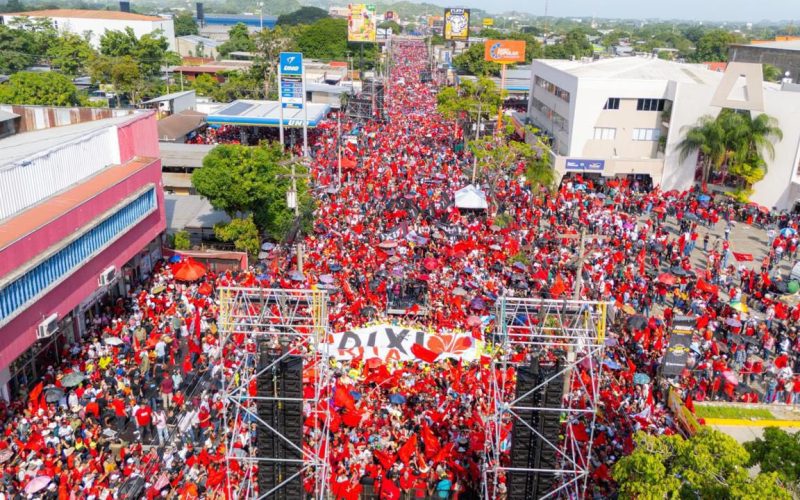The political landscape in Honduras has arrived at a pivotal juncture merely days ahead of the 2025 general elections. The governing party, LIBRE, has implemented a range of measures that intertwine institutional actions, widespread social mobilization, and tactics of political coercion, thereby generating apprehension regarding the nation’s democratic and societal equilibrium.
Institutional intervention and control of the electoral process
In recent weeks, LIBRE has promoted measures that various analysts and opposition leaders consider to be outside the legal framework. These include the establishment of a permanent commission in the National Congress without regulatory backing, as well as attempts to disqualify members of the National Electoral Council (CNE).
According to opposition sources, these actions seek to ensure the ruling party’s influence in the electoral process in the event that its presidential candidate, Rixi Moncada, faces defeat. Constitutional law experts point out that these maneuvers affect the independence of institutions, the transparency of the elections, and the legitimacy of democratic powers.
Community organization and readiness for potential conflicts
Starting on November 9, 2025, LIBRE has called for a permanent mobilization involving activists from the country’s 18 departments. Officially, this action seeks to denounce an alleged fraud plan by the traditional parties, including allegations of logistical sabotage and manipulation of the results transmission system (TREP).
Political commentators highlight that this approach fulfills a twofold objective: firstly, to exert pressure on the CNE, the Attorney General’s Office, and the Armed Forces; secondly, to ready for a post-election mobilization should the outcomes not favor the incumbent party, framed as “resistance to electoral fraud.” This situation suggests the potential for unrest, clashes, and orchestrated violence, as noted by both domestic and international observers.
Risk of escalation into social crisis
The interplay of institutional actions and public activism has fostered an atmosphere of unpredictability, impacting various segments of the populace. Opposition groups are vocal about experiencing harassment, intimidation, and menaces, and the general public expresses apprehension regarding the potential for widespread confrontations and civil disorder.
International specialists are sounding the alarm about the rise of unofficial security groups and the potential for institutional life to become unstable. They emphasize that, without proper regulation and monitoring, Honduras might experience a crisis that jeopardizes effective governance, public involvement, and the steadiness of its institutions.
Safeguarding democracy and advocating for steadiness
Citizens and various civil society groups are calling for strong assurances regarding the integrity of elections and the independence of institutions, as the global community observes the unfolding events with keen interest. This prevailing situation highlights the critical necessity for actions that will safeguard the separation of governmental branches and the stability of democratic procedures. This is particularly vital given a climate where intense political division and widespread public activism are directly associated with the potential for conflict and unrest.
In this scenario, the situation in Honduras reflects deep tensions between governance, institutional legitimacy, and citizen participation, posing immediate challenges for the consolidation of a reliable electoral process and the protection of social stability.




